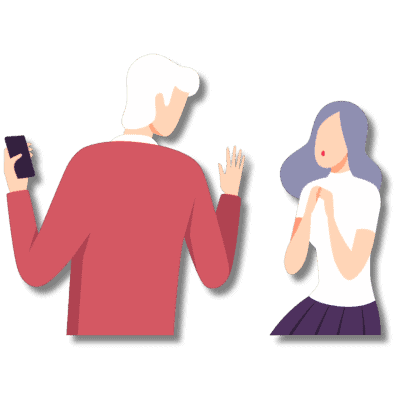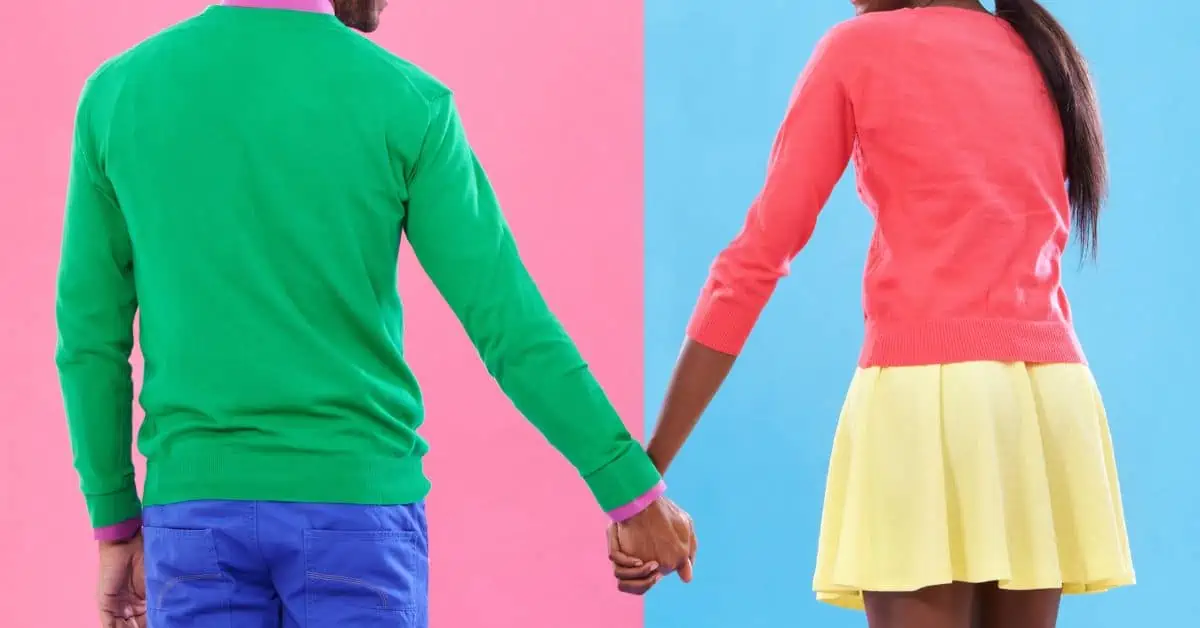For a long time, people have believed in the theory that “opposites attract.” Meaning that if they date someone completely different from themselves, they will end up happier. This idea has been firmly established in the public consciousness for quite some time–but is this fact or fiction?
According to the best and brightest, the idea that opposites attract is not rooted in reality and is a myth. In fact, several studies have shown that people are more likely to trust and form close relationships with others who share their physical characteristics, their core views and values, their interests, and other similar traits. Psychologists and experts agree that individuals have always gravitated toward others who share their principles and preferences.
So, where did this myth come from, and why do we still believe it? If you don’t know who you’re attracted to or why, know that you’re in good company–love and dating are exhilarating and can be stressful simultaneously!
Origins of the Saying ‘Opposites Attract’
When dealing with magnets, opposites probably attract, but when you add people and relationships into the mix, things get a little more nuanced. The adage “opposites attract” is prevalent not only in the US but in a lot of other cultures as well.
But the expression “birds of a feather flock together” has been around for quite some time, too. As far as human interactions go, modern science tries to figure out which of these two phrases is more accurate–and it’s leaning toward “birds of a feather.”
As a child, you probably saw Disney’s Belle (Beauty) and the Beast’s (Beast) first meeting on the big screen, or maybe it was Cinderella and how Prince Charming swept her off her feet despite her disadvantaged background. Ariel the mermaid’s quest to wed Prince Eric, regardless of her absence of legs, likely made you squeal with joy–romantic couples who are considered “wrong” for one other (according to society norms) are often depicted in the media.
Over 80% of the population maintains the belief that opposites attract, although this is rarely the case–what really matters in a romantic relationship is how much you share in common, both in terms of character and biology.
Motives and Magnetism
Research on mating preferences conducted in the 1950s by sociologist Robert Francis Winch sought to address the age-old issue, “Do opposites attract?” Winch interviewed couples in order to learn more about their dynamics, characteristics, and wants during the course of his study.
A successful marriage, according to Winch’s study, necessitates compatibility between the partners’ personalities, particularly in terms of socially relevant attributes like aggression and assertiveness–for instance, a man who is more extroverted than his wife would be quite happy with her being more introverted. According to Winch’s findings, complimentary qualities are more common than the “opposites attract” theory would have you believe.
Additional studies on pairs of complimentary personalities have shown contradictory findings, yet several studies have indicated that opposites do not, in fact, attract. The similarity between two people is a powerful magnet, drawing them closer together. Even still, Winch’s research on complementary ideas was spot on since subsequent studies have shown that spouses often prefer it when their partners have characteristics they lack.
In 2007, researchers Markey and Markey discovered that husbands were less happy in their relationships if either they or their spouses were emotionally distant. On the relationship warmth scale, men favored partners who were more open. Even “colder” wives on the affiliation scale favored warmer, more affectionate husbands. In this particular scenario, opposites might be attractive to one another.
Despite these results, the verdict was different for authoritative and submissive positions. Based on their findings, the Markeys concluded that:
- Submissive women were happier when they were in monogamous relationships with other submissive individuals.
- The remainder of the study followed the same trend–outgoing partners tended to seek partners who were also outgoing,
- And partners who were affectionate wanted affectionate significant others.
Like Minds Think Alike: Dating Apps
Sometimes, opposites just don’t work out–relationship experts say that finding someone with whom you share commonalities in key areas like age, IQ, religion, and degree of education is the foundation of a happy and healthy relationship. Even if a couple has considerable differences in ethnicity, culture, or other areas, they may still have certain things in common that help them feel closer to one another.
These results were also seen in a 2013 research by dating app giant eHarmony–according to research into the platform’s matching algorithm, even when two people at first appear to be opposites, they frequently end up together because of their shared values and interests.
While it’s true that couples who couldn’t be more different from each other on paper often struggle to thrive, it doesn’t mean that people with divergent worldviews can’t find happiness with one another.
It’s possible that social media’s outsized cultural influence and the platform’s algorithms that pair up users with individuals who share their views might encourage daters to gravitate toward those who think and feel similarly.
Why? Because social media connections and mutual “likes” on Facebook and Twitter are the basis for many dating apps’ suggested matches. And almost half of all US people aged 18–29 use dating apps, according to a Pew Research report.
In the aftermath of the polarizing 2016 US presidential election, dating apps for people with similar political leanings emerged–The Right Stuff is one of several new apps that cater to politically conservative customers. Bumble implemented a ‘filtering’ tool about two years after the election so that users could dismiss dating profiles of potential matches who didn’t share their political or lifestyle preferences.
Some Opposites Do Attract
There may be something to the saying, though, as you can throw a rock and hit a couple that are complete opposites, although studies show they are less likely to connect–even they might be confused as to what it was about each other that made them fall in love. It’s also possible that some people are drawn to those who are bad for them, like choosing partners who cannot fulfill them in the relationship department.
There could be distinctions between these connections and organic ones– relationship-seeking people with a history of trauma may develop trauma bonds, which could impact their outlook on the possibility of finding meaningful connections in the future.
They may have problems with self-worth, confidence, and setting reasonable boundaries in their relationships.

In such scenarios, people may be influenced by the “attractions of deprivation.” They might need to seek their lovers’ affection and approval, even if their partners cannot provide it. Because of their inability to cope with the thought of being abandoned, they can have difficulty leaving toxic or abusive relationships, and they might try to make relationships work with people who are unsuitable for them and cycle through relationships trying to make things work. It can prove difficult for them to feel at ease in healthy romantic partnerships, and attachment styles play a big role in such types of behavior.
Final Thoughts
In the eyes of online dating apps, opposites not attracting is a perk, not a glitch! An OkCupid representative said, “OkCupid is notorious for helping people connect on social and political issues due to our questions-based algorithm” and talked about issues that help users “match” that include BLM, gun control, reproductive rights, and the Covid-19 vaccine.
Plenty of us use social media and dating apps to meet new people and find romantic partners, and these platforms all have one thing in common: they steer us toward others who share our values. Fortunately, research shows that having similar worldviews and beliefs strongly predicts a long-term romantic partnership. But there are drawbacks; if we exclusively date those who share our beliefs, we miss out on interesting talks and the possibility of expanding our horizons.
The adage may soon become archaic, though, due to the pervasiveness and power of technology and the reality that opposites have never really attracted.
